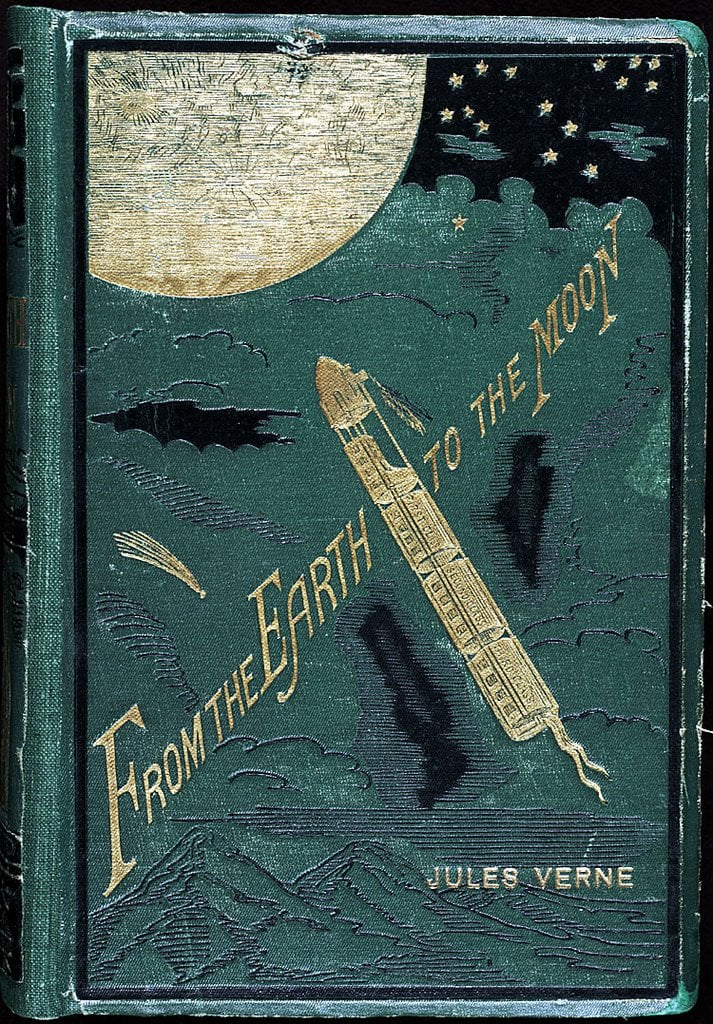As a child, I was completely enchanted by the book From the Earth to the Moon by Jules Verne. I read it over and over, wide-eyed with wonder, convinced that the astronauts in the story were real people who had actually walked on the Moon. I even memorized their names like they were heroes I might meet one day. It took a while for me to grow up and realize that real humans had already landed on the Moon, long before I was even born. Yet, somehow, the line between fiction and reality remained beautifully blurred in my imagination.
So the real story goes like this: it was the Apollo missions – bold, daring adventures launched by NASA – that carried humans beyond Earth for the first time. Apollo, named after the Greek god of light, truth, and knowledge, was a fitting symbol for a mission that illuminated the path beyond our world. Apollo 11 was the mission that changed everything.
It was on July 20, 1969, that Neil Armstrong, Buzz Aldrin, and Michael Collins made history. Armstrong and Aldrin became the first humans to walk on the Moon, while Collins remained in orbit, alone in the command module. I often think about Collins – how devoted he was to the mission, how he accepted the role of watching over his crewmates from afar, never setting foot on the surface himself. For science, sometimes we must make sacrifices, and his was quiet, profound, and essential.
The idea that three humans – fragile and small compared to the vastness of space – had flown all the way to the Moon and back, using computers less powerful than a modern calculator, feels both impossible and magical. It’s no wonder that even today, when someone exaggerates their accomplishments, people still say with a smile, “You didn’t launch Apollo!” That’s how monumental this achievement remains in our collective memory.
The Apollo missions were born of intense geopolitical competition. But perhaps what matters most is that, at the height of global tension, humanity managed to break through one of its greatest barriers. We broke free from Earth’s gravity – and, for a moment, even from the Iron Curtain that divided nations. Science broke through the barriers that divided us, and for a brief moment, the Moon united us.
Since then, several countries – including the former Soviet Union, China, India, Japan, the European Space Agency, and the United Arab Emirates – have launched missions to the Moon, many of them robotic. Still, no human, from any country other than the United States, has walked on its surface. And of the 12 people who have done so, all have been men.
That is changing.
NASA’s Artemis program – named after Apollo’s twin sister – aims to send the first woman and the next man to the Moon. Among the astronauts training for Artemis missions is Yasmin Moghbeli, an Iranian-American woman. As a girl from Iran, this fills me with pride. I see in her the dreams of millions of young girls around the world, especially those growing up in places where gender equality is still a distant goal. But while Artemis promises a future that includes women in humanity’s next giant leap, we must recognize the long road still ahead. Access to education, freedom to dream, and the means to pursue those dreams are not equally distributed across our planet.
The Moon may be our closest celestial neighbour, but for so many children – especially girls – it still feels impossibly far. That’s why anniversaries like this matter. They remind us of what we’ve accomplished, but also of what we’ve left undone.
We once reached the Moon. It’s time to make sure that when we return, we bring all of humanity with us.
After all, even during one of the tensest chapters in modern history, when nations were divided by ideology and walls both real and symbolic, it was the spark of competition that led us to one of humanity’s greatest scientific triumphs. The Apollo missions remind us that science transcends borders. And maybe, just maybe, the next giant leap will not be about beating another nation, but about uniting us all under one sky.
I deeply hope we do not divide the Moon among us and draw borders across its silent surface. From Earth, the Moon is our shared nightlight—glowing gently above us all, with no borders.
About PI
Perimeter Institute is the world’s largest research hub devoted to theoretical physics. The independent Institute was founded in 1999 to foster breakthroughs in the fundamental understanding of our universe, from the smallest particles to the entire cosmos. Research at Perimeter is motivated by the understanding that fundamental science advances human knowledge and catalyzes innovation, and that today’s theoretical physics is tomorrow’s technology. Located in the Region of Waterloo, the not-for-profit Institute is a unique public-private endeavour, including the Governments of Ontario and Canada, that enables cutting-edge research, trains the next generation of scientific pioneers, and shares the power of physics through award-winning educational outreach and public engagement.

